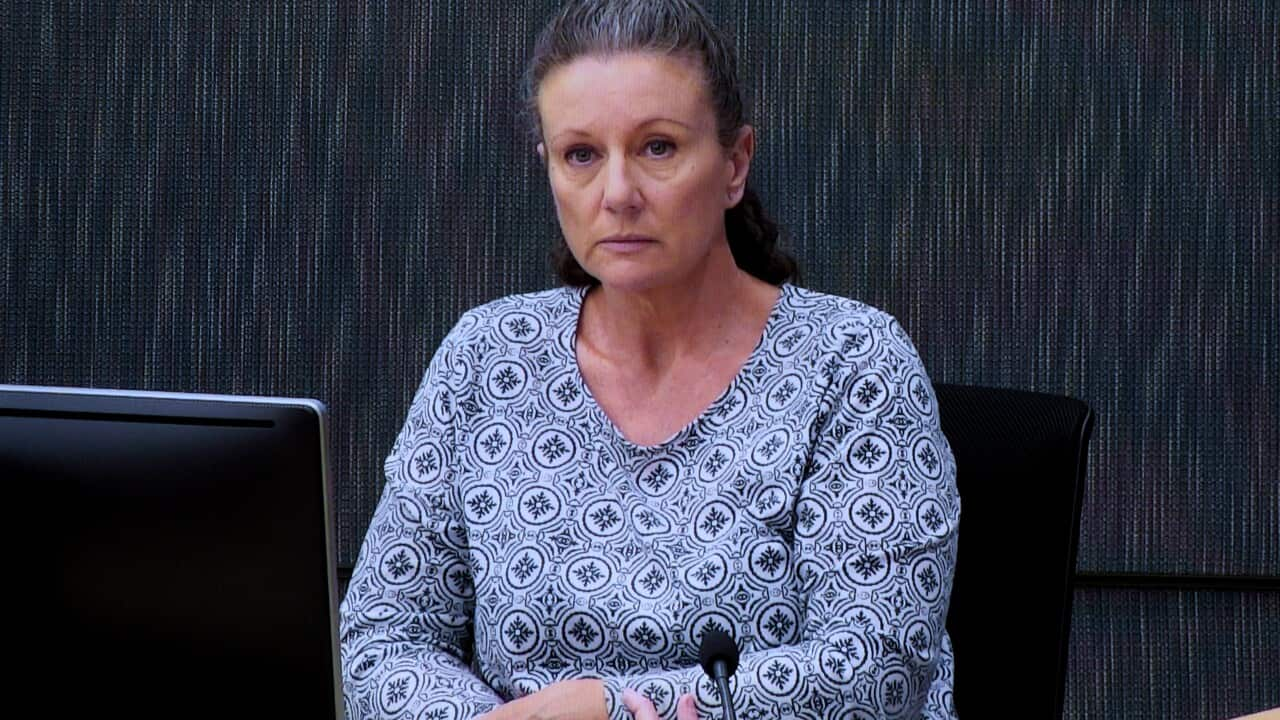After 20 years in prison, Kathleen Folbigg has been granted an .
Now 55 years old, Folbigg was once dubbed 'Australia's worst female serial killer', but has always maintained that she was innocent of killing her four children, in a case that has gripped Australia for decades.
Here’s what you need to know about the controversial case, and why Folbigg’s convictions could be overturned.
What was Kathleen Folbigg imprisoned for?
In 2003, a NSW jury found Folbigg guilty of killing her four young children over a period ranging from 1989 - 1999.
She was convicted of the murder of three of her children: Patrick, Sarah and Laura, and the manslaughter of her eldest child, Caleb.
Folbigg was sentenced to 40 years in prison, with a non-parole period of 25 years.
The four children were aged between 19 days and 19 months when they died, and all died suddenly in circumstances that medical and scientific experts found difficult to explain at the time.
Folbigg has always maintained that she did not kill her children and was innocent of the crimes.
Evidence used to convict Folbigg of the murder and manslaughter charges included her diary entries and a controversial theory that has since been discredited.

Kathleen Folbigg was 35 years old when she was convicted of murder and manslaughter and sentenced to 40 years in prison with a 25-year non-parole period. Source: AAP / Mick Tsikas
Meadow’s Law has since been debunked, and a number of convictions that relied on the theory in murder trials overseas have been quashed.
Why was Kathleen Folbigg pardoned?
An unconditional pardon was granted to Folbigg on Monday and she walked free from the Clarence Correctional Centre near Grafton in northern NSW that morning.
The Governor of NSW has the power to grant pardons based on recommendations from the state’s attorney-general.
NSW Attorney-General Michael Daley recommended to Governor Margaret Beazley that Folbigg be pardoned, and the recommendation was accepted.
The pardon was issued due to new scientific evidence that Mr Daley said casts reasonable doubt on the conviction.

NSW Attorney-General Michael Daley said he wished Ms Folbigg well after she was pardoned. Source: AAP / Bianca De Marchi
Mr Daley revealed he had received an advance copy of a summary of an inquiry by former NSW chief justice Thomas Bathurst into Ms Folbigg’s convictions in which Mr Bathurst said he was "unable to accept … the proposition that Ms Folbigg was anything but a caring mother for her children".
"She has now been pardoned," Mr Daley said.
"If she is not out already, she will be soon and we wish her well.”
The pardon does not mean Folbigg's convictions will automatically be quashed.
But Greens MP and Folbigg supporter Sue Higginson said she believed the convictions would be quashed in the Court of Criminal Appeal and pointed towards an admission from the director of public prosecution about reasonable doubt.
"That means that most likely there will be no objector in terms of her application to have her convictions quashed in the criminal court of appeal," Ms Higginson said.
What did the inquiry into Kathleen Folbigg’s convictions find?
The pardon followed two inquiries into Folbigg’s convictions.
Following the conclusion of the first inquiry, which started in 2019, rare genetic variants identified in Folbigg and her daughters triggered a second inquiry.
The started in November 2022, headed by Mr Bathurst, and, in April, heard credible evidence the babies may have died of natural causes.
Evidence from cardiac and genetic experts was considered by the inquiry, as well as evidence from forensic pathologists, a pediatric intensivist and a neurologist. Psychology, psychiatry and other evidence relevant to Folbigg's diaries was also taken into account.
“On the whole of the body of evidence before this inquiry there is a reasonable doubt as to Ms Folbigg’s guilt," Counsel Assisting the Inquirer Sophie Callan SC said in April.
What does Kathleen Folbigg’s pardon mean for the criminal justice system?
Australia's peak science body has called for an overhaul to the nation's criminal justice system following the pardoning of Folbigg.
The Australian Academy of Science acted as an independent adviser to the second Folbigg inquiry.
Chief executive Anna-Maria Arabia said reforms were needed to allow science to inform decision-making, and prevent further miscarriages of justice.
"I'm absolutely relieved that Kathleen Folbigg has been pardoned," she told reporters in Canberra on Monday.
"We don't need scientists put into a boxing ring, put up against each other.
"We need a way in which science can be heard fairly, transparently, and independently by the justice system."
Ms Arabia, a neuroscientist, said other like-minded countries including Canada and New Zealand, had adopted a criminal case review commission.
"It's been a very successful model ... this is an opportunity for Australia to implement such a system or something similar," she said.
Ms Arabia said there were many cases where there have been pleas for pardons based on new evidence coming to light.
"There are too many for anyone to look at just in an ad hoc way," she said.
"This is why something like the criminal case review commission could look at those cases independently and determine whether a new process is required."
-With additional reporting by the Australian Associated Press.










